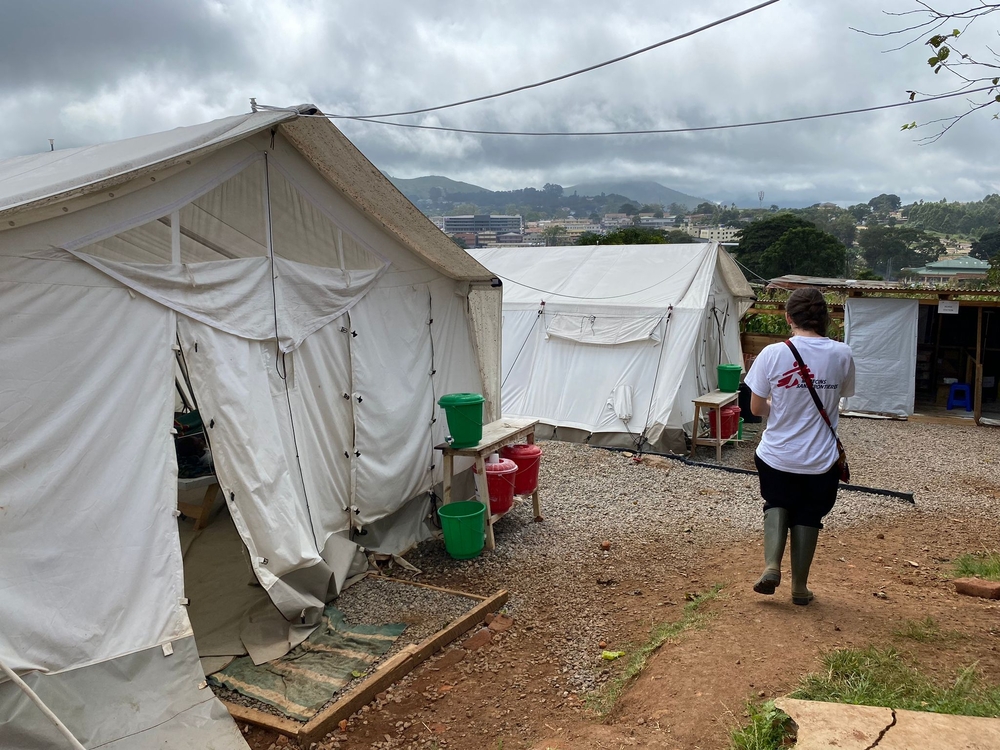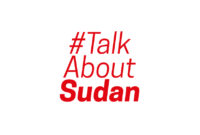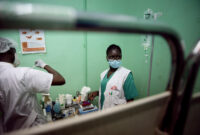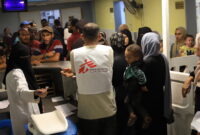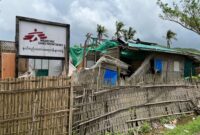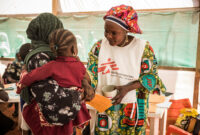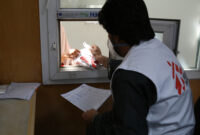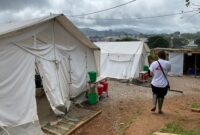Flashquote – amid cholera vaccine shortage, outbreak response is a multipronged approach
WHO’s cholera team have reported to the media that stocks of the oral cholera vaccine – needed to both respond to cholera outbreaks and prevent them – have run out. (Reuters, Feb. 14, 2024.) It comes as there are currently an extraordinary number of cholera outbreaks around the world, leading to extremely high demand for vaccine doses, but very little capacity to manufacture and supply them. In October 2022, the International Coordinating Group (ICG) on Vaccine Provision [1] made the unprecedented decision to temporarily reduce the number of cholera doses given to people from two to one, to stretch out supplies. Nearly 18 months on, the situation has worsened, with no new manufacturers entering the supply system, and the demand for doses now leaving stockpiles empty until at least through mid-March.
Dr Daniela Garone, International Medical Coordinator for Doctors Without Borders/Médecins Sans Frontières (MSF), issues the following quote:
“The world’s oral cholera vaccine stocks have dried up. This is a worrisome situation, as 16 countries worldwide are reporting cholera outbreaks. This affects MSF teams closely, as we are trying to respond to an extraordinary number of cholera outbreaks, including in Ethiopia, Sudan, Zambia, and Zimbabwe.
“Many countries have requested or will urgently need vaccines. All the doses in production until mid-March have already been allocated, and the demand for doses keeps growing. Today, we’re still desperate for more manufacturers to jump in and urgently produce oral cholera vaccines, and it’s essential that more technical support be provided for new manufacturers to speed up regulatory processes and scale up production capacity.
“The lack of vaccines means that people and entire communities will continue to be unprotected against cholera. We’re very worried that people are at much greater risk of getting and potentially dying from a disease that’s preventable, if there’s no vaccine available to respond to an outbreak in their community, nor to prevent one starting in the first place. However, vaccines are just one of the prevention tools. In the meantime, the control of cholera depends on providing safe water and sanitation, enhancing disease surveillance and diagnosis, and more importantly, ensuring early access to treatment and care when an outbreak does occur.”
1 The ICG is composed of members of the International Federation of Red Cross and Red Crescent Societies, Médecins Sans Frontières, UNICEF and WHO.
